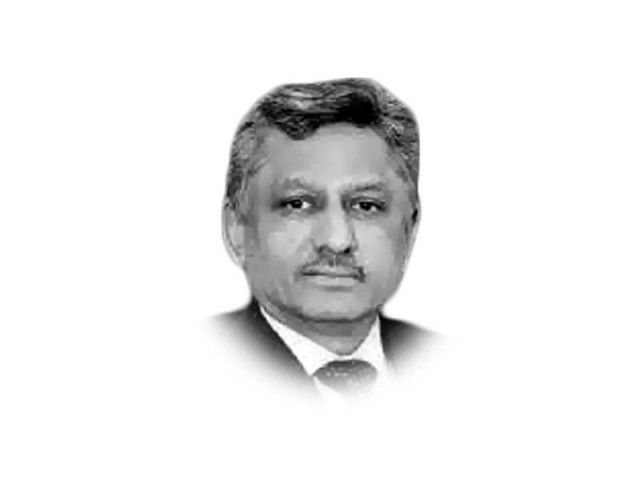Talking to IMF: where’s the plan?
It is very clear now from the global experience that IMF programs by themselves are no solution to any economy’s ills

We are once again at the table with the IMF team looking at our report card like a naughty student made to re-learn the lessons that he failed to remember. In the developing world, going to IMF is bad news, just like going to a doctor who gives you bitter pills, asks you to discipline your eating habits and to do some exercise to remove unwanted fats. But the question is: why do you end up in the emergency ward every now and then, after a brief and fragile recovery? It means that you don’t give up bad habits and your doctor has no permanent cure for your disease.
Whenever we are faced with a situation when we need to go to IMF, we are faced with two extreme views, both equally unreasonable. One totally against going to IMF and the other looking towards it as a messiah for all our economic ills. A balanced view has always been missing.
We find such extremism in our economic managers as well, for example in handling of our Foreign Exchange rates. Our former Finance Minister, Dr Miftah Ismail, believed that leaving the exchange rates to “market” (actually a cartel) was the most efficient way. Investigations by the State Bank found manipulations by market players. On the other hand, the present Finance Minister Ishaq Dar continued to believe for several months that he could bring down the dollar rate to less than two hundred rupees while witnessing foreign currency disappear from the market. A balanced handling would have been to check the rates manipulations while allowing market adjustments as per demand.
Similar divergence in views was held by the former Finance Minister Dr Hafeez Shaikh who was ready to sign on the dotted line on the very first day of his arrival from Dubai. Shaukat Tareen thought that renegotiating the IMF deal was possible even though the former Governor State Bank did not share his views.
It is very clear now from the global experience that IMF programs by themselves are no solution to any economy’s ills. With a 3-year timeline, an IMF program is mostly an exercise in window-dressing through induction of more debts, some monetary adjustments, short-lived fiscal discipline and leaving with charts looking good for the time being. Without structural improvements, economies go back to the same or even worse conditions in a couple of years after the program or even during the program. The recent economic catastrophes in Argentina and Egypt should inform us enough about the viability of IMF programs.
But then it is asking too much from a lender who comes to rescue a sinking boat, fixes some visible holes, and leaves. Expecting it to rebuild a new boat for us would be unrealistic. In order to fix a difficult economy as ours, we need to have a consensus economic plan with clear objectives and economic targets for 20-30 years, which covers our long-term fiscal and monetary policies, energy plan and policies, trade policy, agricultural policy, and industrial and investments policies. Do we make our budgets with targets towards achieving long-term economic, energy and food securities?
We have one set of economists who believe that the western economic model can be applied as it is to our economic conditions. The mindless pursuit of “Washington Consensus” based reforms led us into the present economic challenges such as trade deficit, current account deficit, circular debts and premature deindustrialisation — all having their nemesis in our “reforms” initiatives of 1990s and early 2000s. While it would be unfair to conclude that we were led into the present economic black hole solely by our “imported reforms prescriptions,” we have always treated them either as sacrosanct or as some conspiracy against our economy.
We need to improvise an economic plan customised to our conditions and not on assumptions that are not applicable here. In simple words, such an economic plan is to be based on making the best use of our resource bank — human resource, mineral resources and agricultural land — by making them more efficient, more productive, with better use of science and technology, and access to finance. It should be time bound to eliminate wasteful expenses, losses and subsidies from the public exchequer, making our defence setup and public sector leaner and smarter. Policy framework should be freed from the capture of rent-seeking elite, be supportive of honest entrepreneurship and provide financial and policy inclusion for SMEs.
At present we don’t have any such consensus economic plan owned by us as a nation, like the Constitution of Pakistan, which could give our economic managers a basis to negotiate the future course with our economic partners and lenders. In the present situation of a rudderless economy, there is no other option but to take IMFs bitter pills while trying to make such a consensus economic plan and policy framework.
We should hope that our political leadership develops such a vision of a bright future that takes us into the league of those economies having successfully turned around. Our establishment, public sector institutions and businesses will have to sacrifice their institutional and business interests for such a future.
Published in The Express Tribune, February 2nd, 2023.
Like Opinion & Editorial on Facebook, follow @ETOpEd on Twitter to receive all updates on all our daily pieces.















COMMENTS
Comments are moderated and generally will be posted if they are on-topic and not abusive.
For more information, please see our Comments FAQ